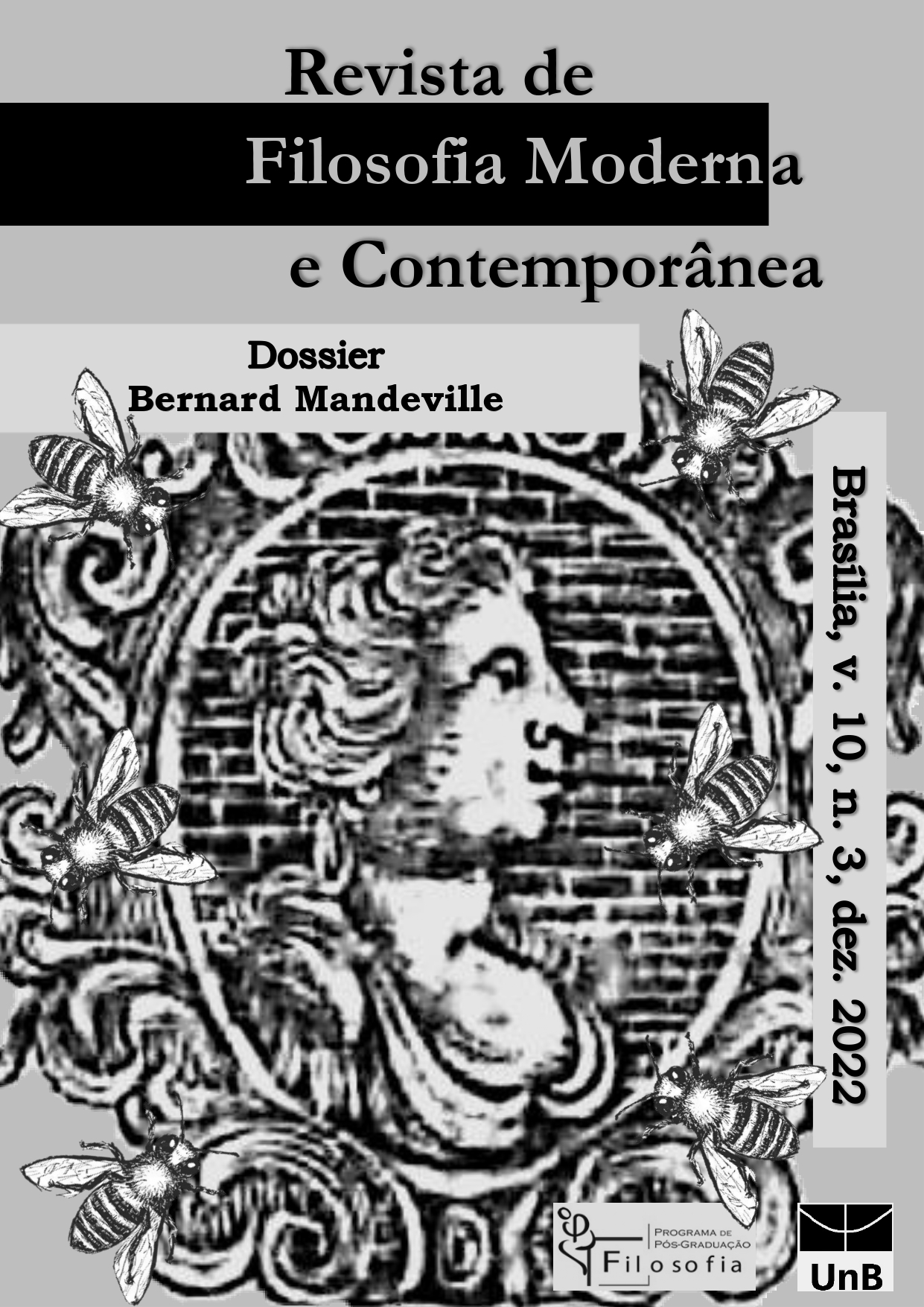Hume and Mandeville on Division of Labour, or, the World of Invention
DOI:
https://doi.org/10.26512/rfmc.v10i3.49609Schlagworte:
Anthropology. Commerce. Division of labour. Imagination. Invention.Abstract
This article proposes approximations between Hume and Mandeville based on the way each of them understands the division of labour as a modern phenomenon characteristic of European commercial societies. The starting point, common to both, is the idea that man, or human nature, is an animal moved by passions that are very similar, if not identical, to those of other animals, notably mammals. The anthropology underlying the division of labour thus has a physiological root. The same paradox interests these authors: the process of the division of labour, which enables the production of so many excellent artefacts, is the labour of unqualified artisans. There is, therefore, a disparity between the product and the principle that engenders it. As we intend to show, this is the leitmotiv of a critique, addressed by Hume, of the teleological proofs of the existence of God.
Downloads
Literaturhinweise
BACON, F. The Advacement of Learning. Ed. Michael Kiernan. Oxford: Clarendon Press, 2001.
CLERO, J. P. Hume. Une Philosophie des contradictions. Paris: Vrin, 1998.
DELEUZE, G. “Présentation”. Instincts et institutions. Paris: PUF, 1955.
HUME, D. A Treatise of Human Nature. Vol. 1. Ed. David Fate Norton and Mary J. Norton. Oxford: Clarendon Press, 2007.
HUME, D. Essays, Moral, Political, and Literary. Ed. Eugene F. Miller. Indianapolis: Liberty Fund, 1985.
HUME, D. The History of England from the Invasion of Julius Caesar to the revolution of 1688. 6 vols. Indianapolis: Liberty Fund, 1983.
HUME, D. The Natural History of Religion and Dialogues concerning Natural Religion. Ed. Wayne Colver and John V. Price. Oxford: Clarendon Press, 1976.
HUME, D. Philosophical Essays concerning Human Understanding. London: A. Millar, 1748.
HUNDERT, E. J. The Enlightenment’s Fable. Bernard Mandeville and the Discovery of Society. Cambridge: University Press, 1994.
MANDEVILLE, B. The Fable of the Bees, or, Private Vices, Publick Benefits, Edited by F. B. Kaye. 2 vols. Indianapolis: Liberty Fund, 1988. First Published by Oxford University Press, 1924.
SÉRIS, J.-P. Qu’est-ce que la division du travail? Paris: Vrin, 1994.
TOLONEN, M. Mandeville and Hume: Anatomists of Civil Society. Oxford: University Press; Voltaire Foundation, 2013.
Downloads
Veröffentlicht
Ausgabe
Rubrik
Lizenz
Copyright (c) 2022 Journal of Modern and Contemporary Philosophy

Dieses Werk steht unter der Lizenz Creative Commons Namensnennung - Nicht-kommerziell - Keine Bearbeitungen 4.0 International.
Direitos Autorais para artigos publicados nesta revista são do autor, com direitos da primeira publicação para a revista. Em virtude dos artigos aparecerem nesta revista de acesso público, os artigos são de uso gratuito, com atribuições próprias, em aplicações educacionais e não-comerciais.


